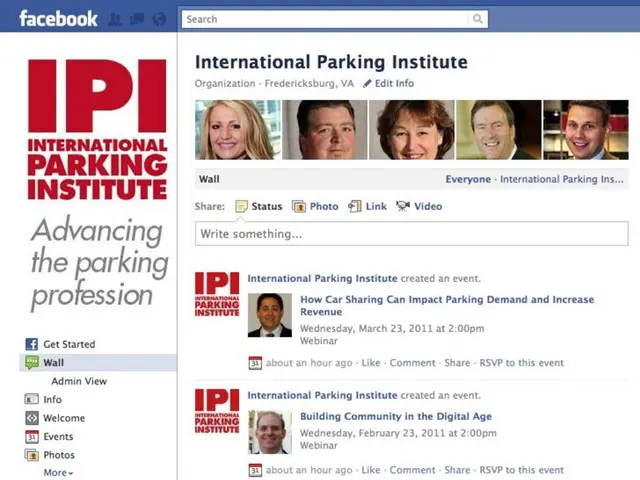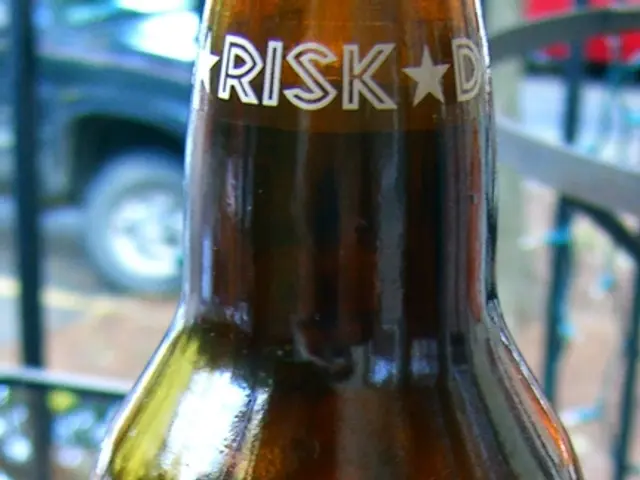Scandalous Shadows: The Toxic Reality Behind Pakistan's TikTok Influencers
Online activities under scrutiny: TikTok homicide underscores Pakistan's discomfort over women's digital presence
With a defiant smile, Sana Yousaf declared, "Despite my family's disapproval, I've made it big and even set up my own business." Her dreams, however, were shattered when a man, enraged by her rejections, gunned her down outside her home. The news sent shockwaves through social media, her followers flooding her last post - a celebration of her 17th birthday - with sympathy and judgment in equal measure.
Some accused her of bringing her demise upon herself, oblivious to the impact of their words. "You reap what you sow," they chastised. Others, more vile, gloated, "It's deserved, she was tarnishing Islam."
Yousaf's tale is far from unique in Pakistan, a nation where women's dreams of success and self-expression often collide with entrenched patriarchal norms and deep-rooted misogyny.
TikTok, with its easy accessibility and ability to propel individuals to fame, has opened up uncharted territories for many Pakistani women. Here, they found a platform to share their interests, from fashion to skincare, all while racking up impressive followings and income, a rarity in a country where only a quarter of women participate in the formal economy.
Yet, as the views on TikTok soared, so did the efforts to police the platform. Telecommunications authorities in Pakistan have repeatedly threatened to block or ban the app, citing "immoral behavior" and the proliferation of LGBTQ and explicit content. In response, TikTok pledged to tighten its content moderation and blocked millions of videos deemed inappropriate.
Unfortunately, the crackdown hasn't stemmed the tide of violence against women influencers. The murders of Yousaf and others echo the chilling legacy of Qandeel Baloch, a trailblazing social media star whose audacious videos and fierce independence made her a household name. After years in the spotlight, she was suffocated by her brother.
Violence against women in Pakistan is rampant, according to the country's Human Rights Commission, and cases of women being attacked for rejecting men's advances are far from uncommon. As Kanwal Ahmed, a vocal advocate for women's rights, succinctly put it, "This isn't one crazy man, this is a culture."
The fear of being judged pervades Pakistani society, particularly among women. Statistics show that only 30% of Pakistani women own a smartphone, compared to double that amount of men. Friends and family often discourage women from using social media out of fear of public scrutiny.
In Balochistan, a man confessed to murdering his 14-year-old daughter over TikTok videos he deemed compromising. In Karachi, a man was arrested for the murder of four women relatives over "indecent" TikTok videos.
These horrifying incidents underscore the severe risks thin-skinned women influencers face in Pakistan. After Yousaf's murder, Bukhari, a fellow influencer, revealed that her own family no longer supports her involvement in the industry. "I'm the first influencer in my family, and maybe the last," she lamented.
Yet, in the face of adversity, some Pakistani women remain undeterred. At a recent vigil in Islamabad, roughly 80 individuals gathered, holding placards that read, "No means no." Syed Ali Nasir Rizvi, the capital's police chief, used a press conference to send a clear message: "If our sisters or daughters want to become influencers, we must encourage them."
However, progress remains slow, and the threats woman influencers face continue to loom large. A 22-year-old suspect was arrested for Yousaf's murder, set to appear in court next week. Until the culture that breeds such violence is address, the shadows cast by Pakistan's TikTok stars remain tainted with danger.
1. Tragic Legacy: The violence and backlash faced by women influencers in Pakistan, particularly on TikTok, harkens back to a lineage of brutal attacks, including the suffocation of Qandeel Baloch by her brother.
2. Conservative Norms: Pakistan's conservative norms and deep-rooted gender roles often dictate women's behavior, particularly in public and online spaces. Influencers who challenge these norms, like Sana Yousaf, often face severe consequences.
3. Misogyny and Patriarchy: The patriarchal nature of Pakistani society continues to control and suppress women's voices, often leading to violence against women who assert their independence. The killing of Sana Yousaf underscores this ongoing reality.
4. Impact on Online Spaces: The misogyny and patriarchy that plague Pakistani society are mirrored in online spaces, where women face unwanted attention and threats, particularly from men.
5. Societal Pressure: Women influencers in Pakistan face immense societal pressure to conform to traditional norms, often leading to self-censorship and the abandonment of their online presence.
© 2025 AFP
- The chilling legacy of violence against women influencers in Pakistan, such as Sana Yousaf's murder, echoes the tragic fate of trailblazing figures like Qandeel Baloch.
- Influencers like Sana Yousaf, who challenge the conservative norms and deep-rooted gender roles in Pakistani society, often face the consequences, including violence and backlash.
- The patriarchal nature of Pakistani society, which controls and suppresses women's voices, is responsible for the ongoing violence against women who assert their independence.
- Online spaces in Pakistan mirror the misogyny and patriarchy that dominate offline society, creating a digital realm where women face unwanted attention and threats.
- Women influencers in Pakistan are subjected to immense societal pressure to conform to traditional norms, often leading to self-censorship and the abandonment of their online presence.







